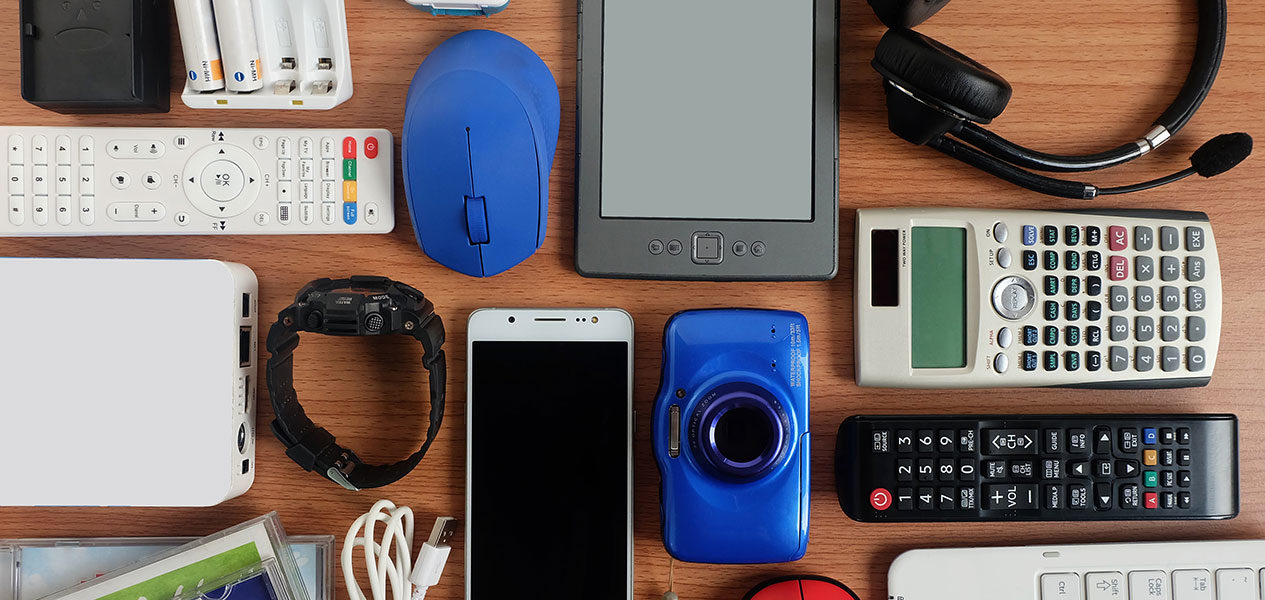Electronics and toys are among the top purchased items during the holidays. What you may not know is that putting your old battery-powered electronics and toys in your waste or recycling bin is not only an environmental no-no, it can be downright dangerous.
Yes, batteries are recyclable, but not in your curbside recycling container. And batteries should never be thrown in the trash, either. A particular menace are lithium-ion batteries, which power many electronic devices, including the laptop or phone you’re reading this on.
Lithium batteries are compact and lightweight, but also volatile. When compressed in the back of a waste collection truck or by the equipment at a recycling center, they can easily be punctured, causing a spark that can quickly ignite a fire fueled by the surrounding waste and recyclable materials. The threat to fire professionals, waste-industry workers and facilities is all too real. As of mid-2019, there were 323 reported fires at waste and recycling facilities in the U.S and Canada, according to Fire Rover, and year to year, facility fires are trending up as more lithium-ion batteries go into the waste stream.
Another concern are the chemicals inside lithium and single-use alkaline batteries which require special handling and a unique recycling process.
Electronic waste - including tablets, TVs and even those “singing” greeting cards - is one of the fastest-growing waste streams in the world¹. The volume of e-waste has more than doubled in the last nine years and is expected to surpass 57 million tons annually by 2021.
It’s important to recycle old electronics the right way. Here are some tips for safely disposing of your most common holiday e-waste.
- Cell phones, computers and printers. Many local Republic Services facilities collect e-waste throughout the year, especially in the spring and fall – check RepublicServices.com for options, or search Earth911 or Call2Recycle to find an e-waste drop-off site near you. We also offer an electronics recycling mail-back program.
- Electronic toys. If toys are still in good working order, it’s best to donate them so they can continue to be enjoyed by more children. However, if they’re broken or damaged beyond reuse, the next best thing is recycling - but not in your residential bin. Check with the toy manufacturer to see if they offer a recycling program for their products. If that’s not an option, you can try safely separating the batteries, plastic, metal and electronic components to dispose of them separately. For the electronic components, check with a local electronics recycler to see if they accept the items.
- Batteries. Several chain stores across the country offer free collection boxes for used household batteries. Go to Call2Recycle for information and to find a drop-off site near you.

